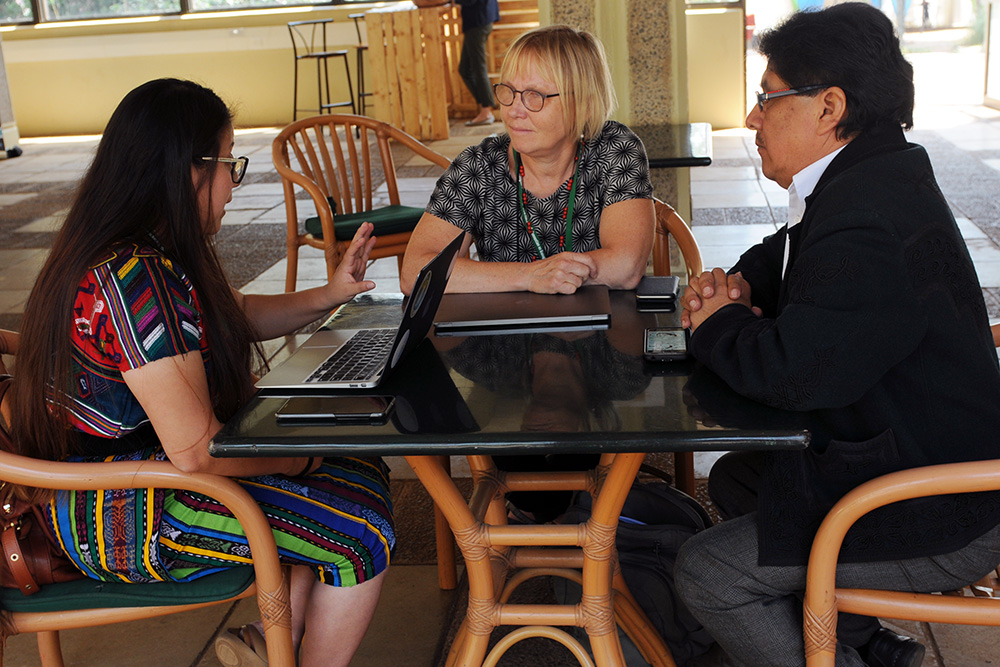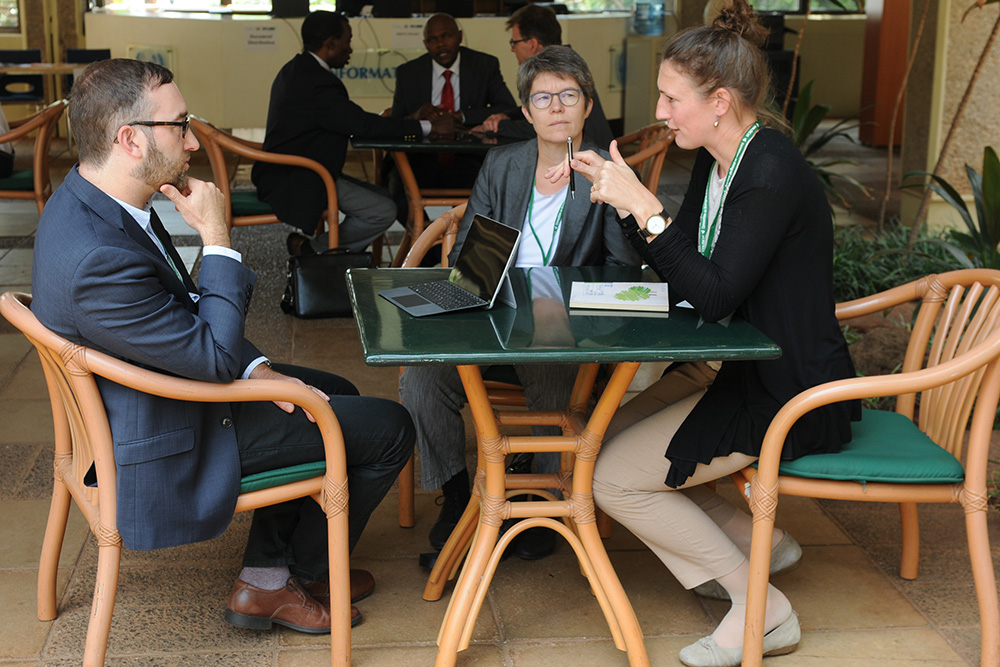Highlights for Wednesday, 28 August 2019
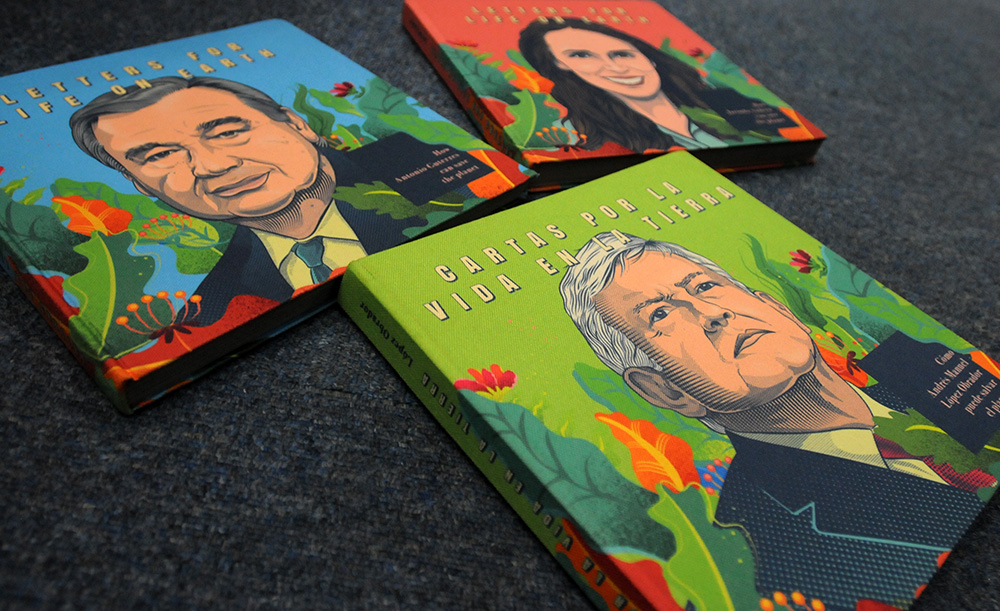
The global civic movement AVAAZ delivers Letters for Life on Earth to world leaders who are called upon to champion a new global deal for nature that protects half the earth, and uses the other half sustainably. More than 2.8 million citizens support this petition.
Read all 10 books.
The first meeting of the Working Group on Post-2020 resumed discussions on the elements of the structure and scope of the post-2020 global biodiversity framework (GBF) on Wednesday.Delegates completed discussions on clusters two, three and four on:
enabling conditions and means of implementation for the GBF, including resource mobilization, financial mechanisms, capacity-building, technical and scientific cooperation and technology transfer, knowledge management, and communication;
planning and accountability modalities, mechanisms and tools, including National Biodiversity Strategy and Action Plans (NBSAPs); national reports, the review process, and voluntary contributions; and
cross-cutting approaches and issues, including mainstreaming, synergies, partnerships, Indigenous Peoples and Local Communities (IPLCs), gender and youth.
During lunch delegates attended an information session on scientific evidence for informing the design of the framework. Presentations included:
Ana María Hernández, Chair of the Intergovernmental Science-Policy Platform on Biodiversity and Ecosystem Services (IPBES), who outlined key IPBES statistics on the impacts of direct drivers of biodiversity loss, and noted the scientific evidence that will be provided by the upcoming IPBES assessments on transformative change and the nexus of biodiversity, water, food and health.
Jian Liu, UN Environment Programme (UNEP), who outlined key findings illustrating biodiversity as a “hidden crisis”. He presented scientific evidence showing that pollution, climate change and biodiversity are the three major interlinked challenges to meeting the Sustainable Development Goals (SDGs), concluding that with the approaching tipping points, transformational change is long overdue.
Irene Hoffmann, Food and Agriculture Organization (FAO) Commission on Genetic Resources for Food and Agriculture, who outlined scientific evidence on multiple interacting drivers of change affecting biodiversity for food and agriculture, and proposed four areas for action, including, among others: addressing knowledge and data gaps; supporting emerging biodiversity-friendly management practices; and improving cross-sectoral collaboration.
Andreas Benjamin Schei, Norwegian Environment Agency, summarized the outputs of the ninth Trondheim Conference on Biodiversity. He highlighted participants’ focus on the urgent need for, inter alia: mainstreaming biodiversity; ecosystem restoration; capturing a variety of ways of understanding nature; increased coherence in implementing the Rio Conventions at the national level; and the ability to track post-2020 implementation.
In the evening, a discussion group chaired by Charlotta Sörqvist (Sweden) and Dilosharvo Dustov (Tajikistan) met to reach a common understanding on the structure and scope of the outcome-oriented elements: vision, mission, goals and targets. Delegates also attended an information session on Nature-Based Solutions and the Climate Action Summit.With such a short week to complete discussions, day two saw in-depth and focused interventions on the potential elements on structure and scope of the GBF. Delegates started wondering whether the outcome of this first meeting will provide an adequately developed foundation for subsequent meetings, and eventually enable a GBF worthy for adoption at the 2020 15th meeting of the Conference of the Parties to the Convention on Biological Diversity (CBD COP 15). Plenary discussions reflected a strong sense that implementation should be a key focus. Indeed, there were many echoing voices emphasizing that if we do not address financial arrangements and enabling conditions, we will be setting ourselves up for failure. It would mean, stressed several delegates, that we have not learned from our mistakes in the context of the Aichi Biodiversity Targets. Familiar debates emerged regarding the balance between ambition and feasibility. One delegate cautioned against, “biting off more than we can swallow,” while another participant said, “with the approaching global tipping points, transformational change is needed yesterday.”
IISD Reporting Services, through its ENB Meeting Coverage, provided daily web coverage from the 1st Meeting of the Open-ended Working Group on the Post-2020 Global Biodiversity Framework. In addition, IISD Reporting Services has published a summary and analysis report which is now available in HTML and PDF.
Photos by IISD/ENB | Diego Noguera
For photo reprint permissions, please follow instructions at our Attribution Regulations for Meeting Photo Usage Page
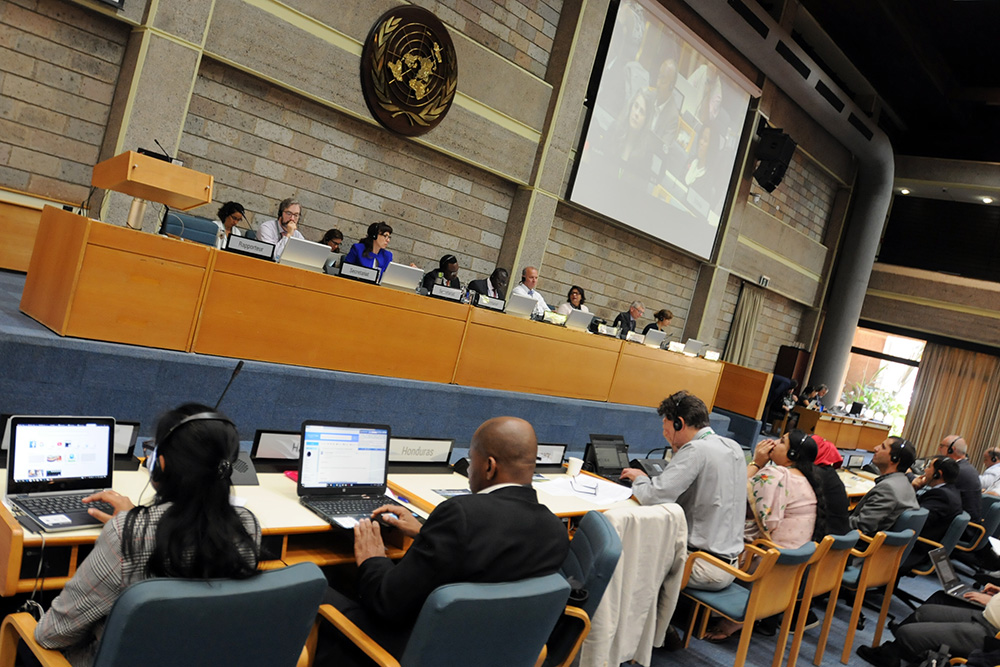
The dais during the morning session
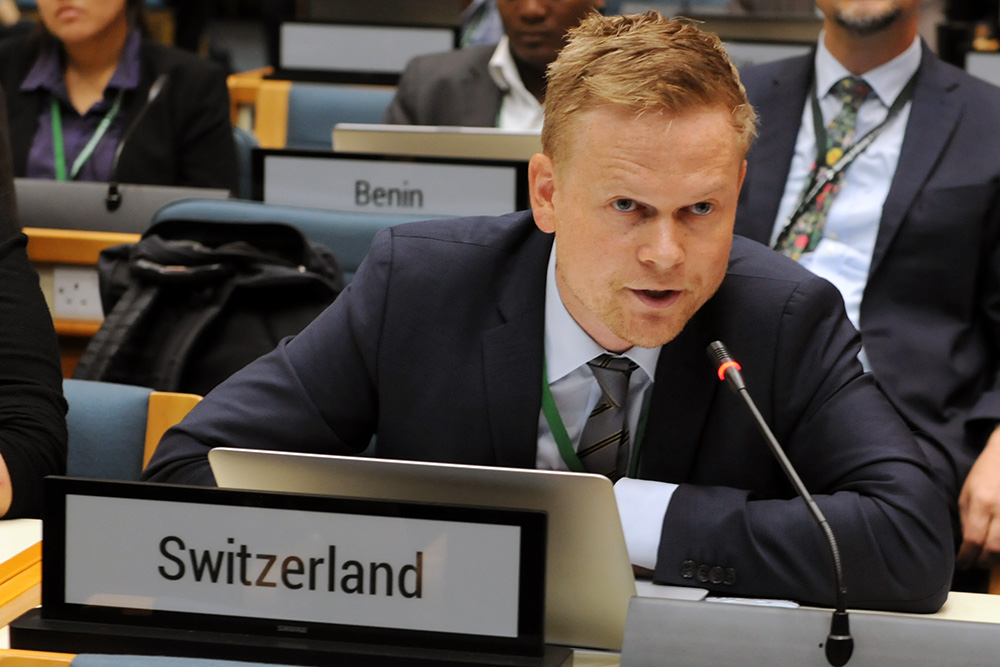
Niklaus Wagner, Switzerland
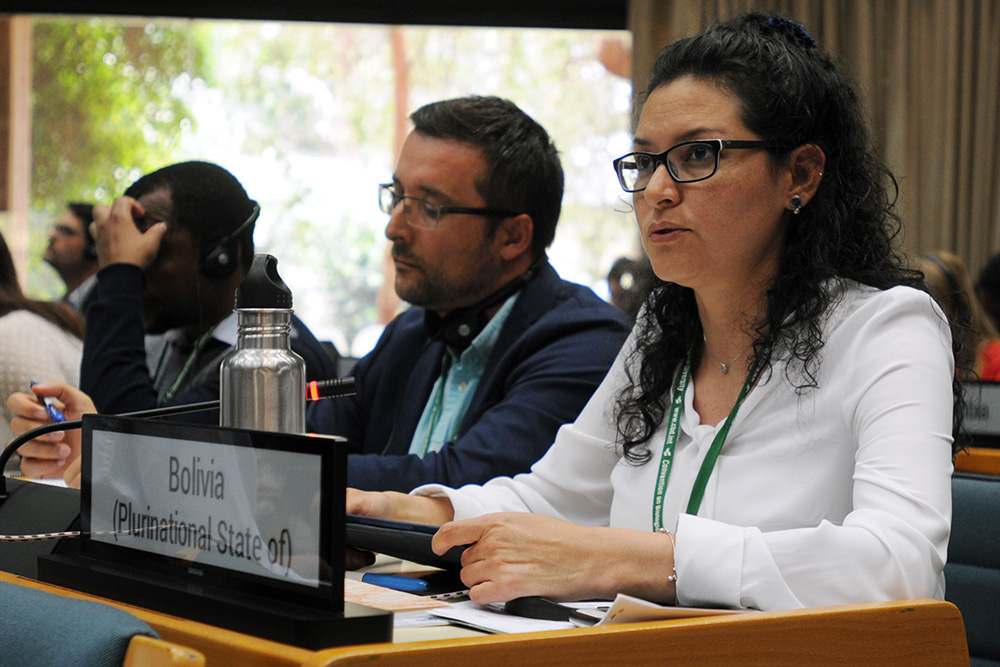
Georgina Catacora-Vargas, Bolivia
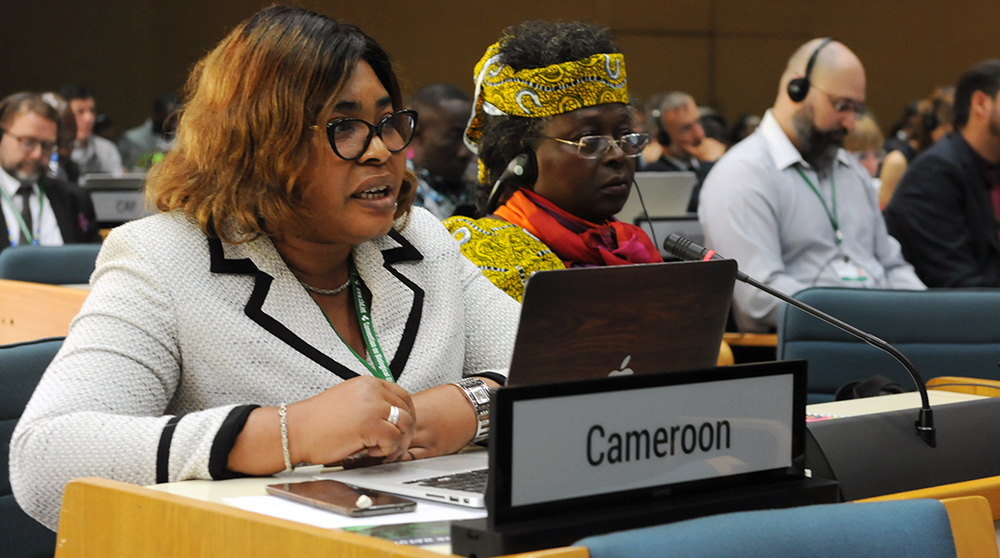
Aurélie Taylor Patience Dingom and Prudence Tangham Galega, Cameroon
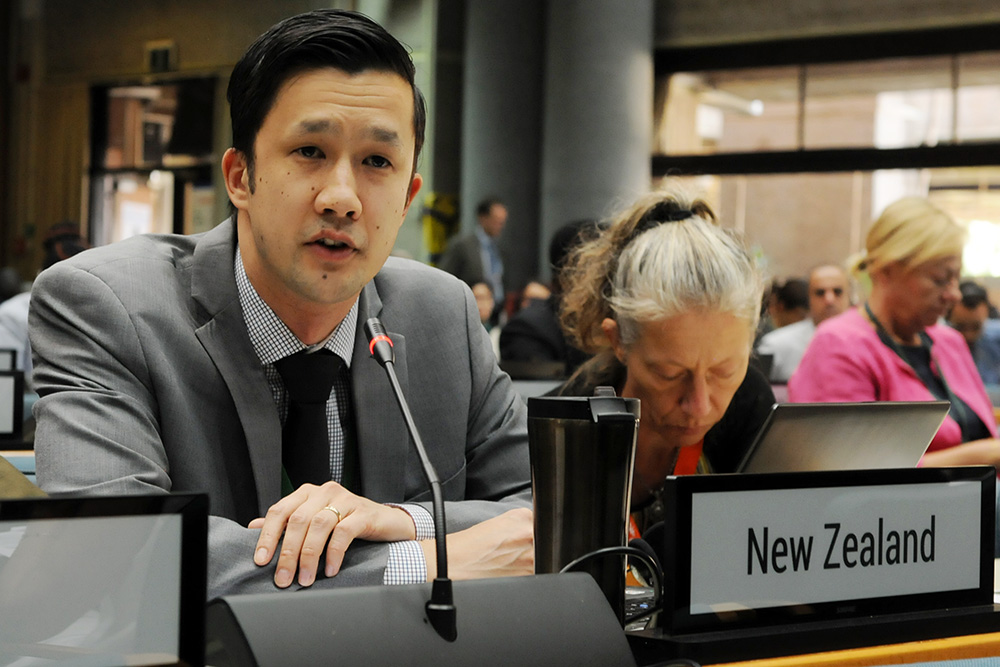
Daniel Wai-Poi, New Zealand
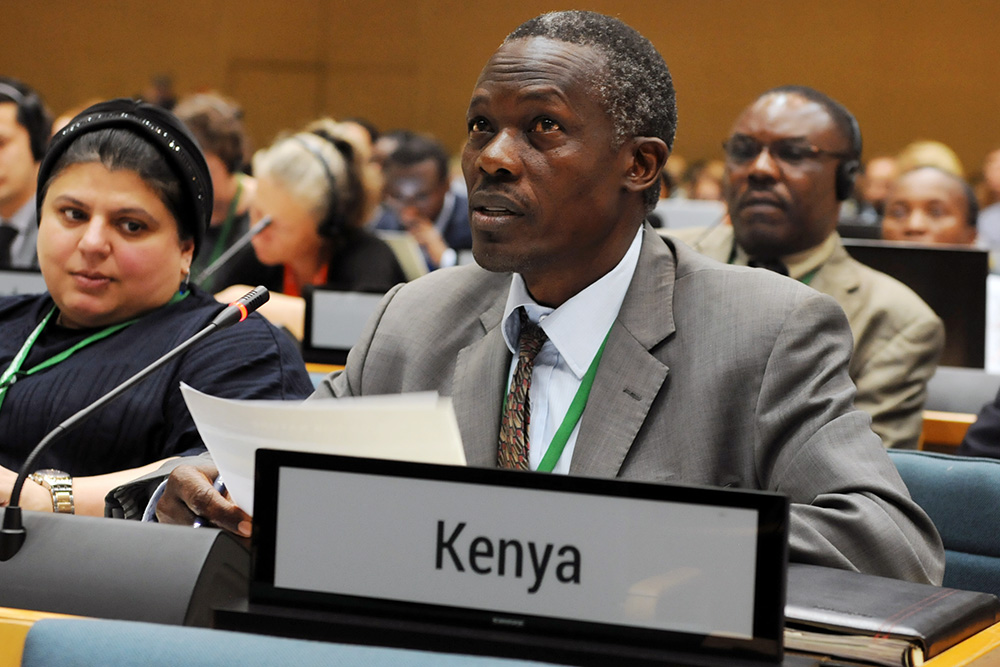
Daniel Wepukhulu, Kenya

Byoung-Yoon Lee and Yuri Kim, Republic of Korea
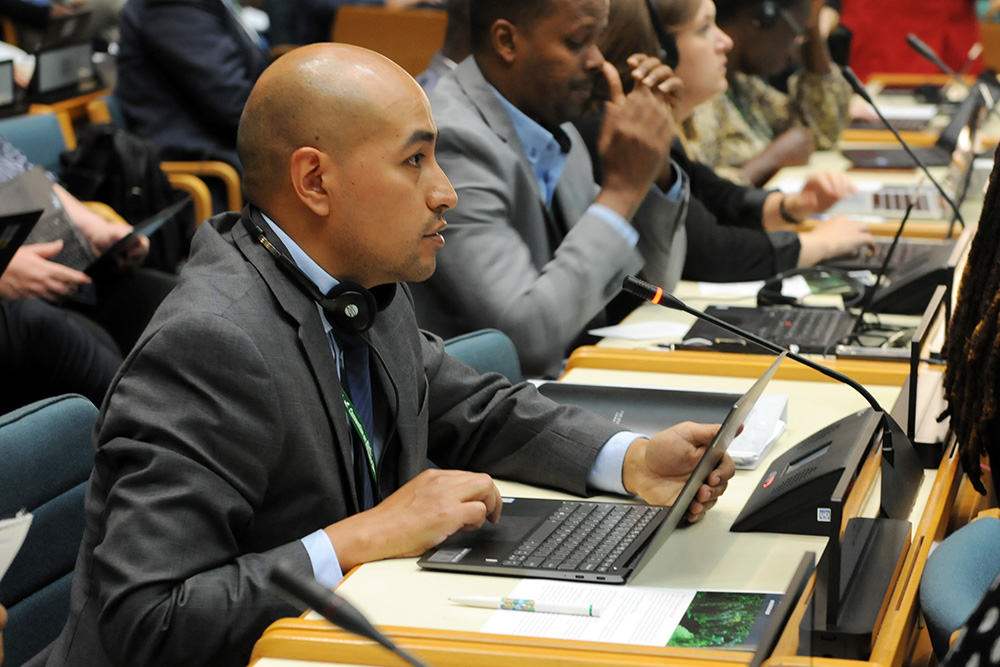
Carlos Manuel Alomía, Ecuador
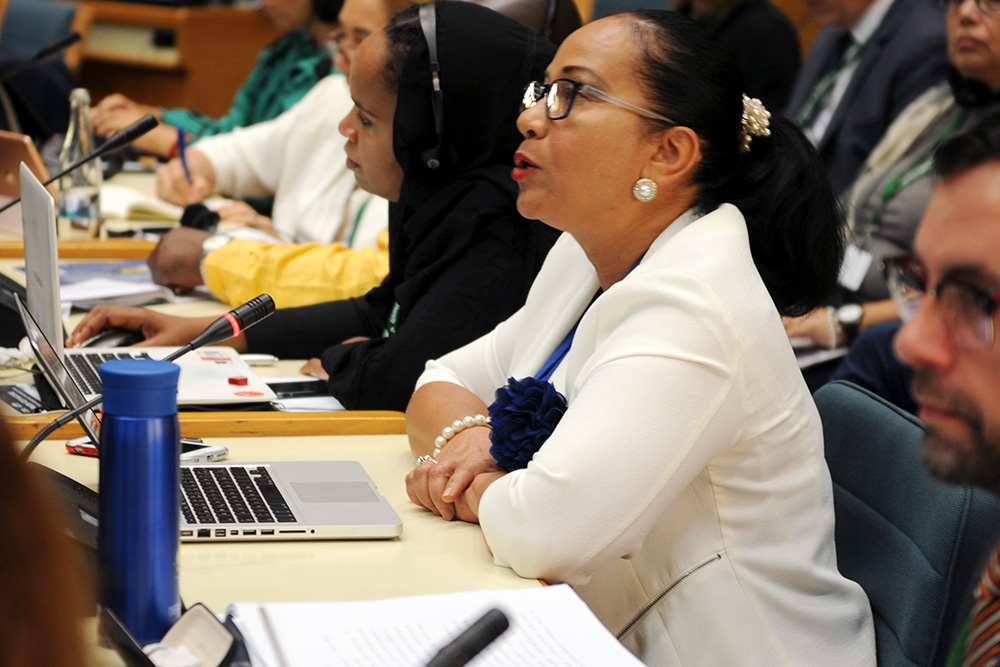
Elizabeth Taylor Jay, Colombia
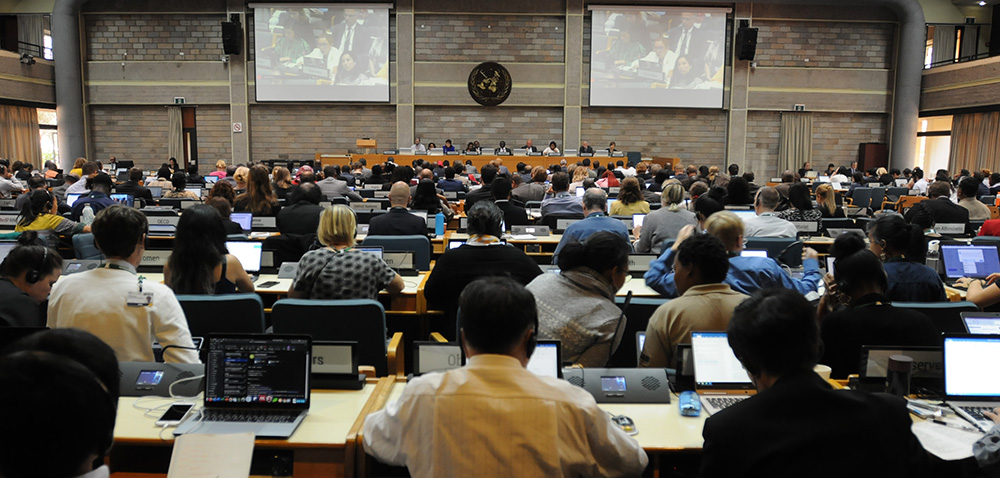
Delegates during Wednesday’s proceedings
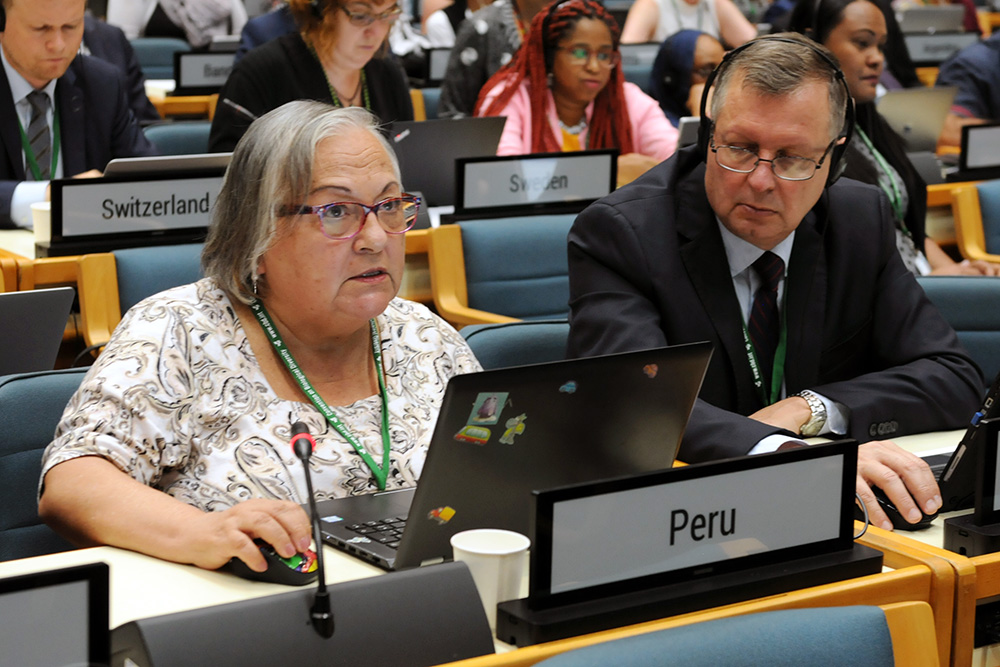
Maria Luisa Angélica del Río Mispireta, Peru, and Santiago Bertoni, Paraguay
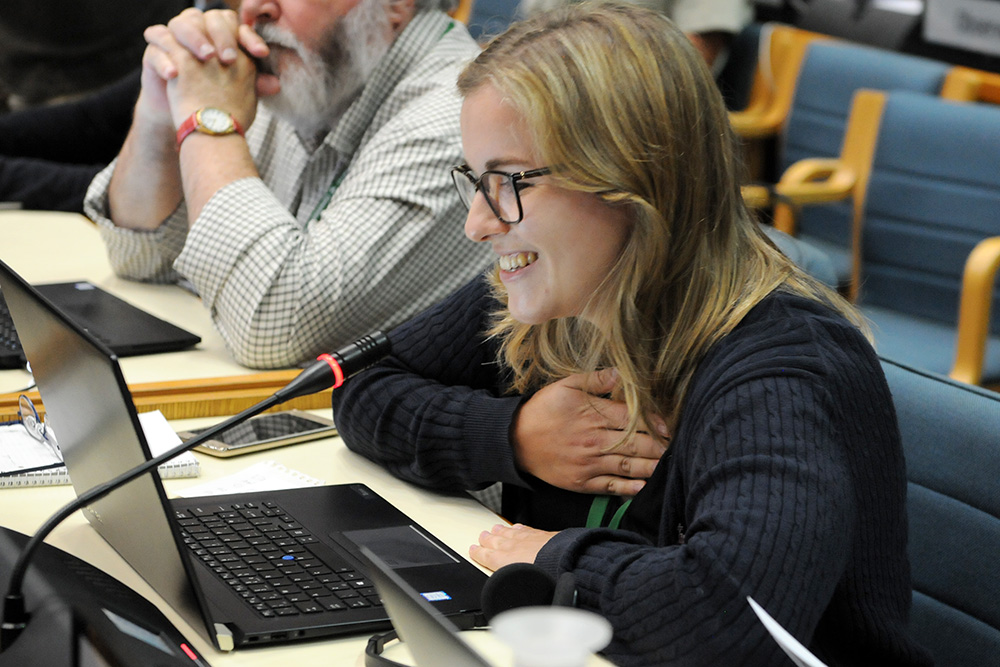
Georgina Chandler, Birdlife International
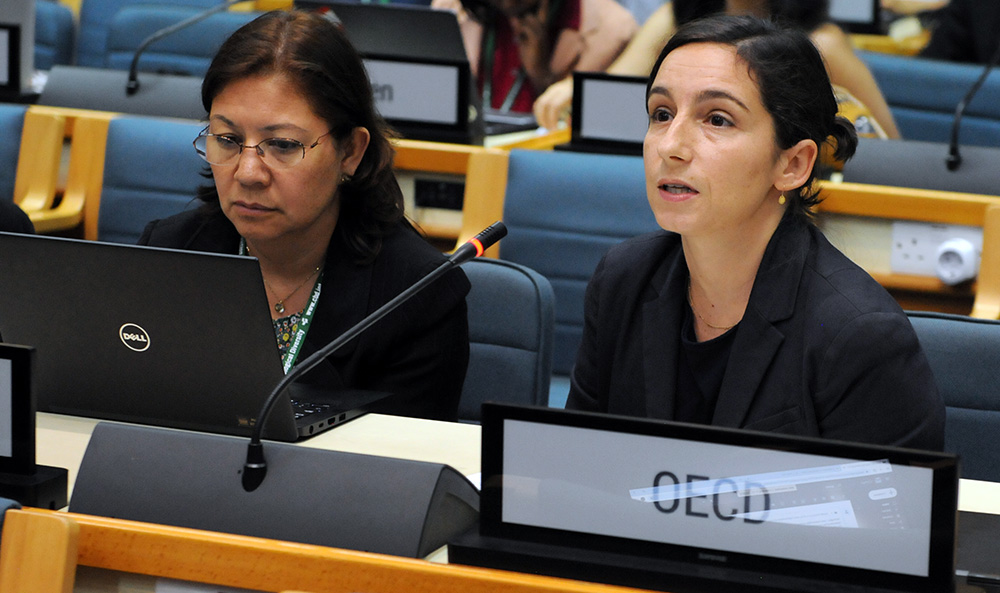
María Rivera, Ramsar Convention, and Katia Karousakis, Organisation for Economic Co-operation and Development (OECD)
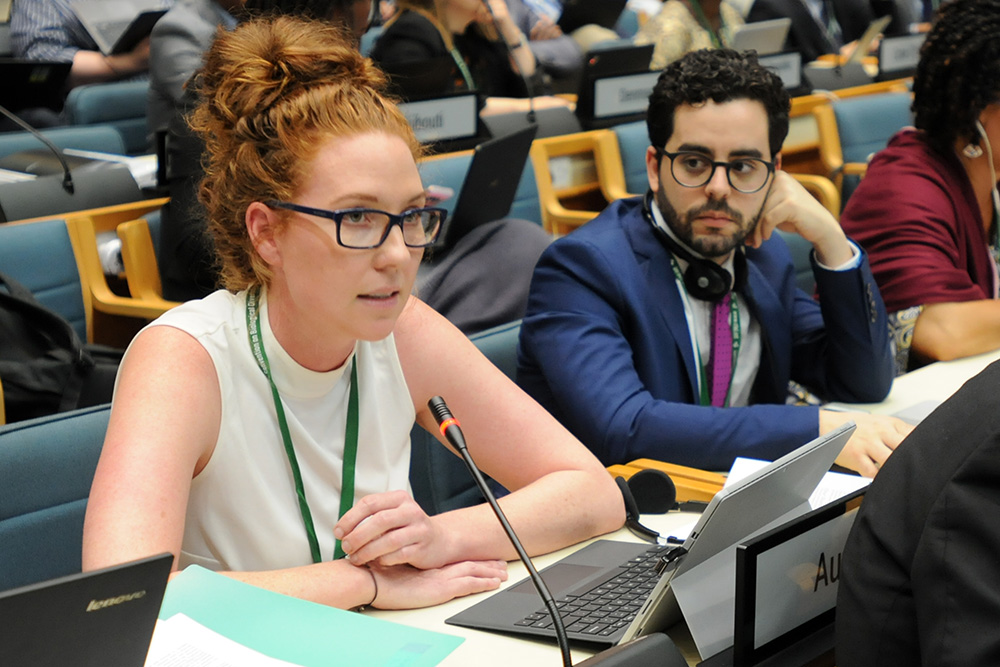
Brooke Hynes, Australia
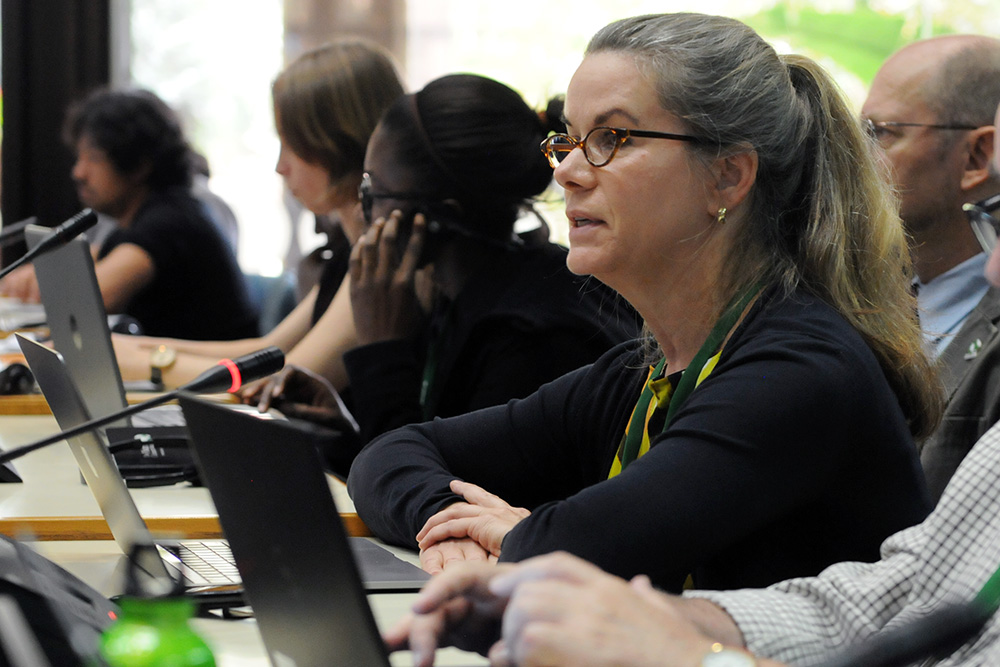
Linda Krueger, The Nature Conservancy
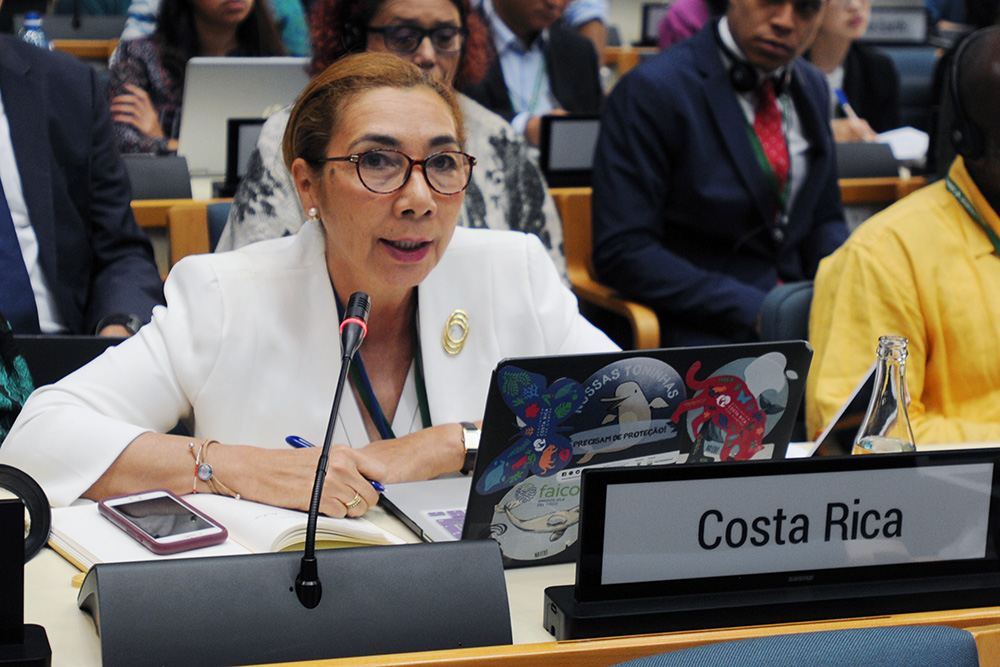
Marta Eugenia Juárez Ruiz, Costa Rica
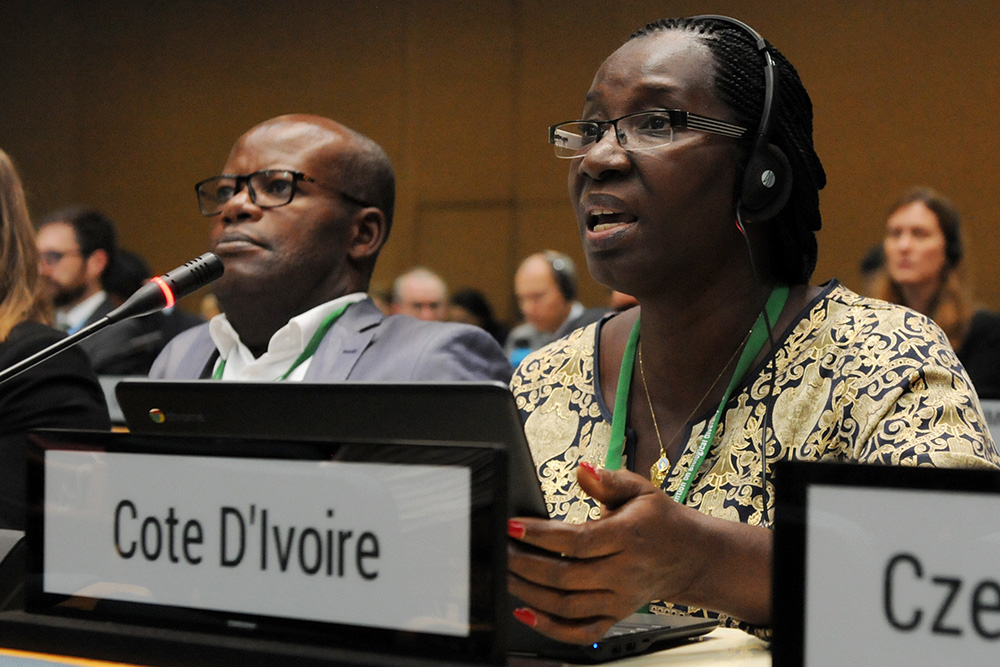
Jeanne N’Tain, Côte d’Ivoire
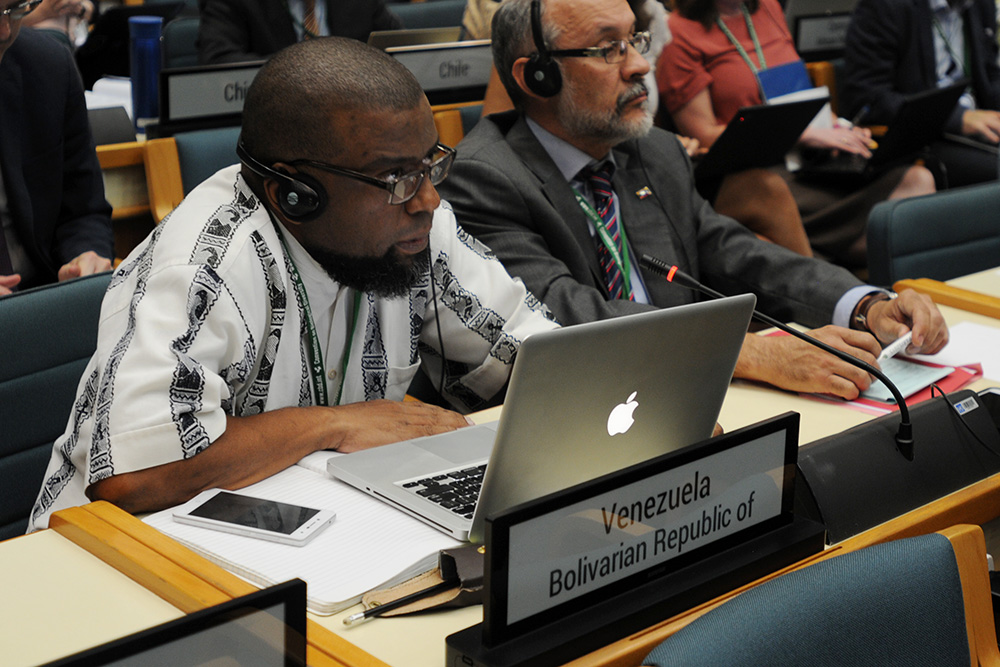
Eder Peña, Venezuela
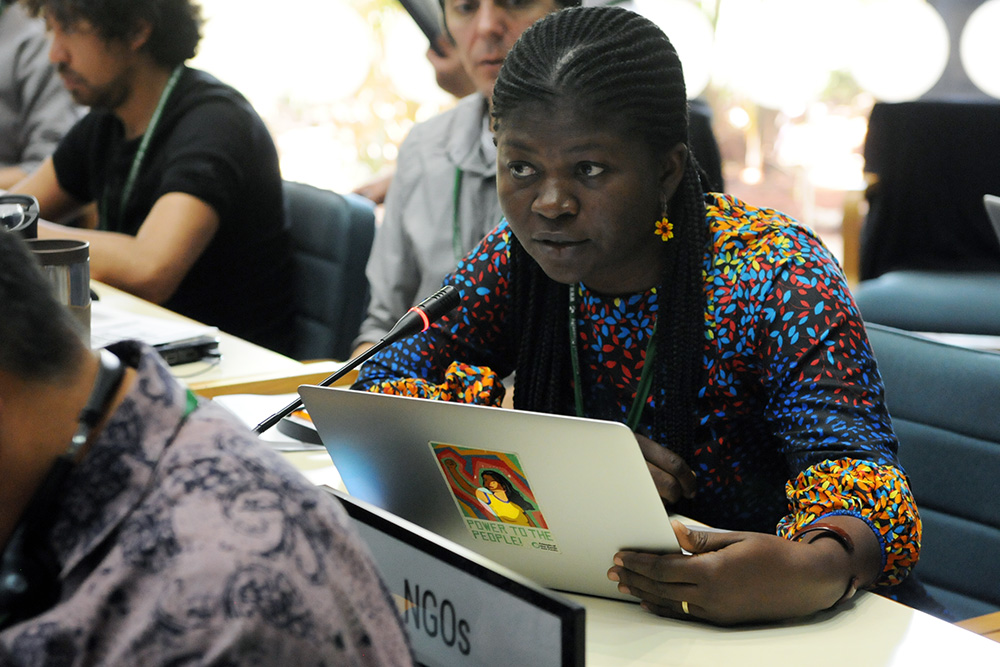
Rita Uwaka, Friends of the Earth Nigeria
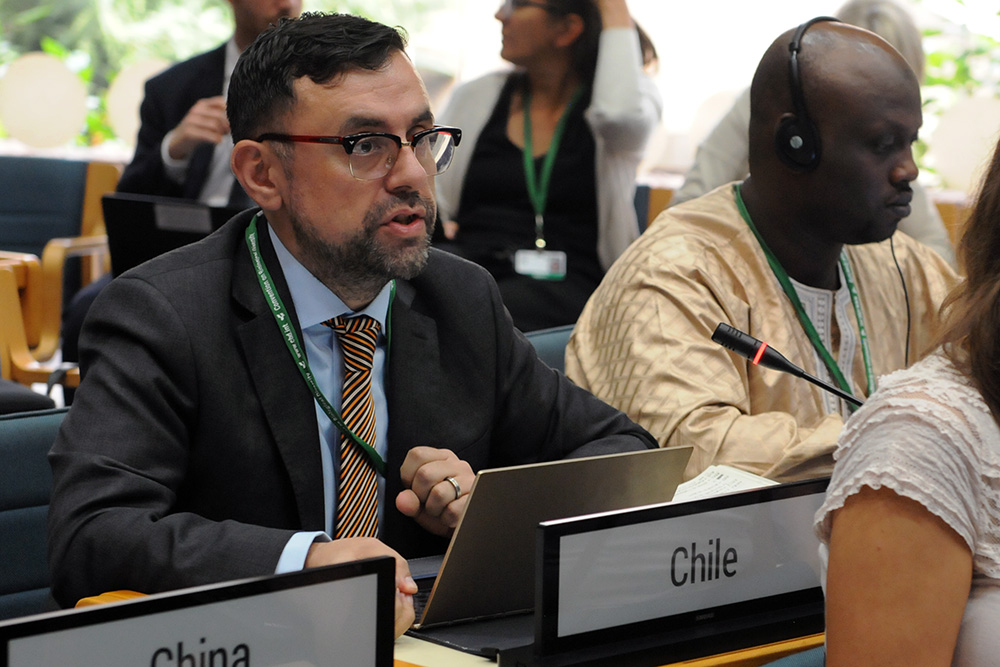
Iván Vejar Pardo, Chile
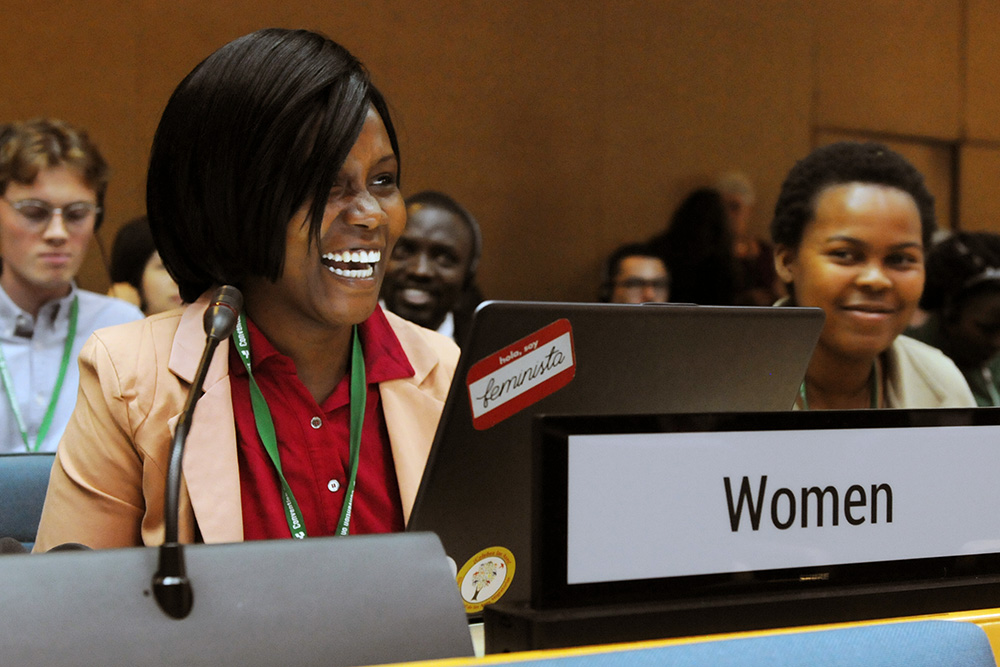
Resiato Salyan, Women
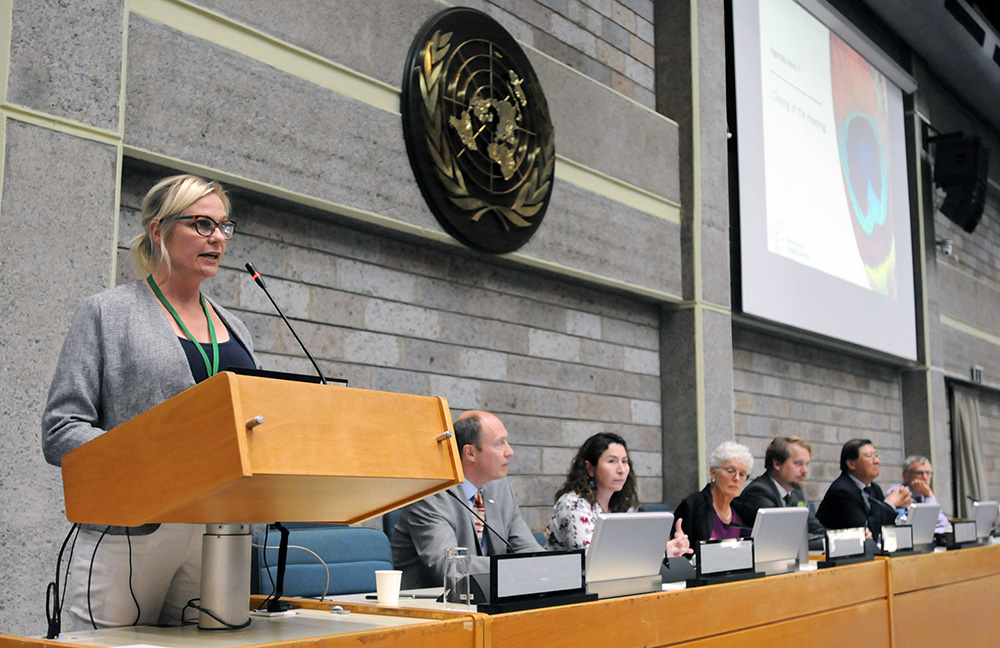
Amielle DeWan (left), National Geographic Fellow, facilitated the lunch session on Recent Assessments
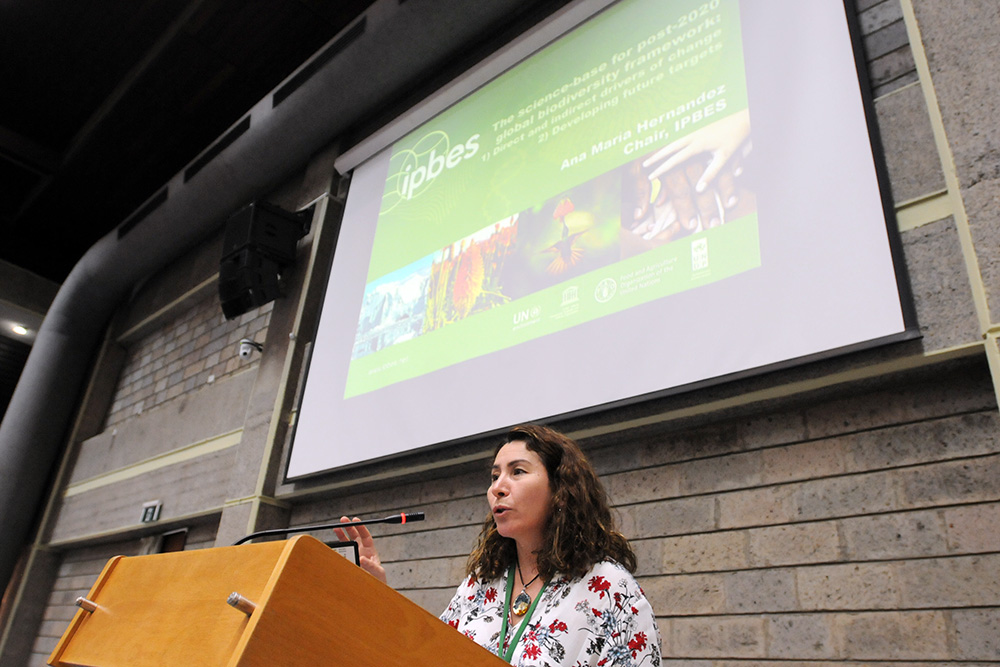
IPBES Chair Ana María Hernández
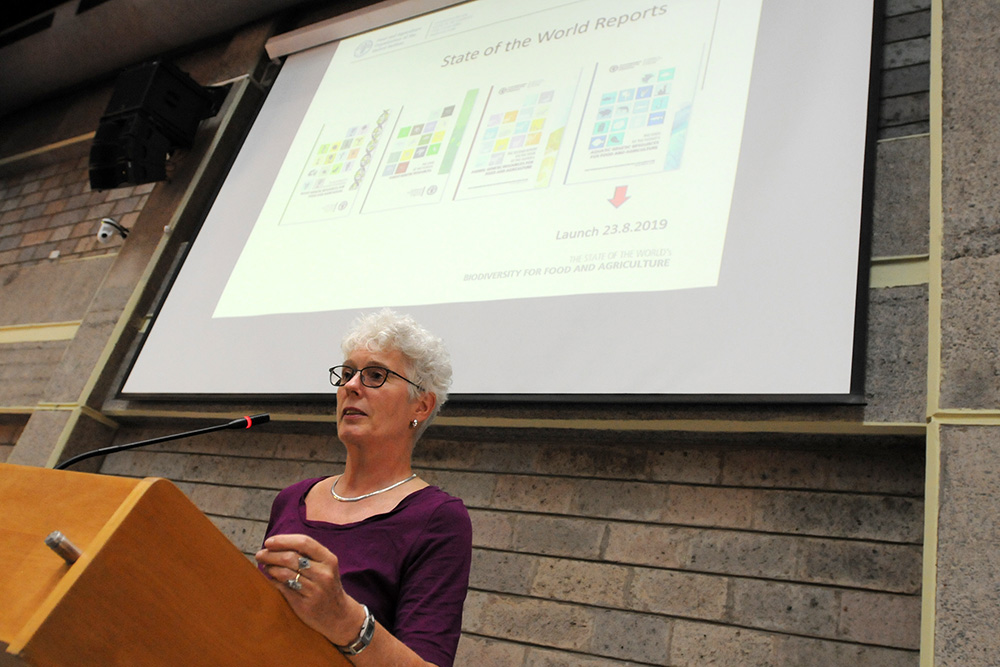
Irene Hoffmann, UN Food and Agriculture Organization (FAO)
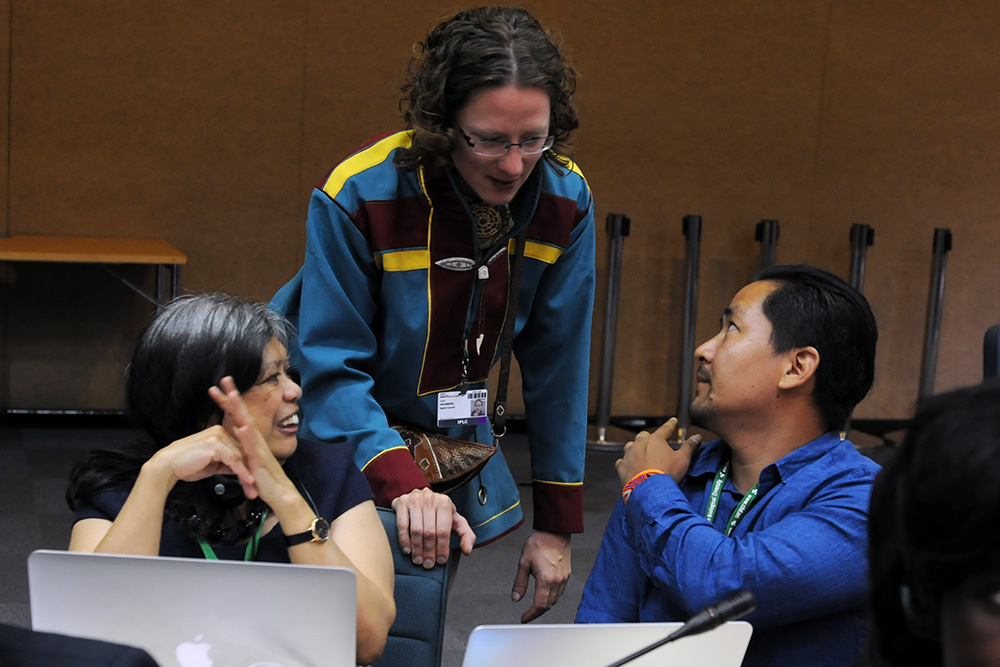
L-R: Joji Cariño, Asia Indigenous Peoples Pact (AIPP); Aslak Holmberg, Saami Council; and Lakpa Nuri Sherpa, AIPP
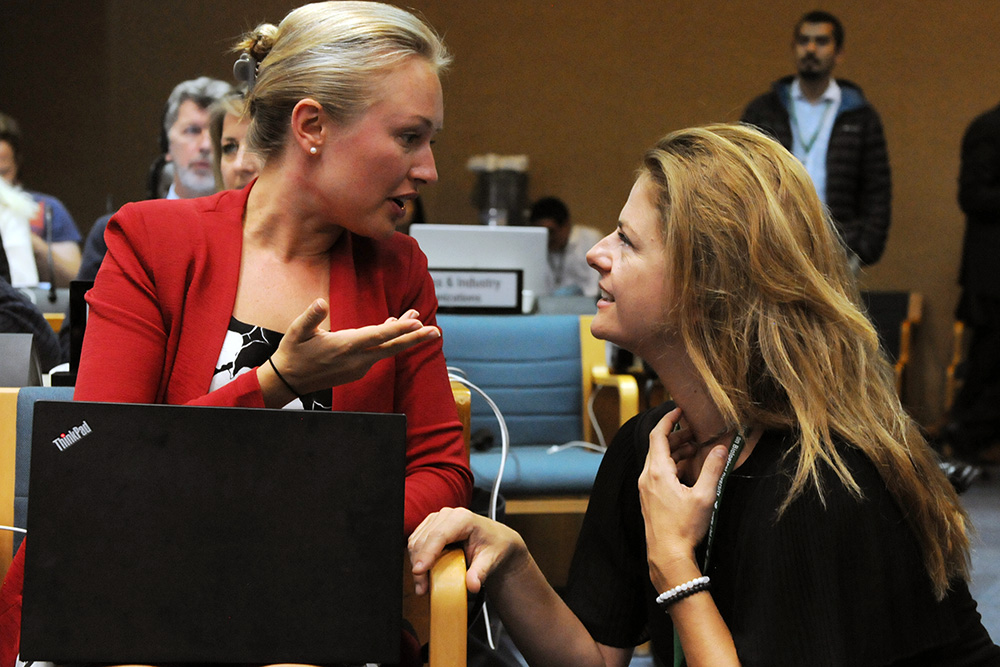
Maria (Masha) Kalinina, the Pew Charitable Trusts, and Marina Antonopoulou, WWF
Delegates at informal meetings outside the plenary room
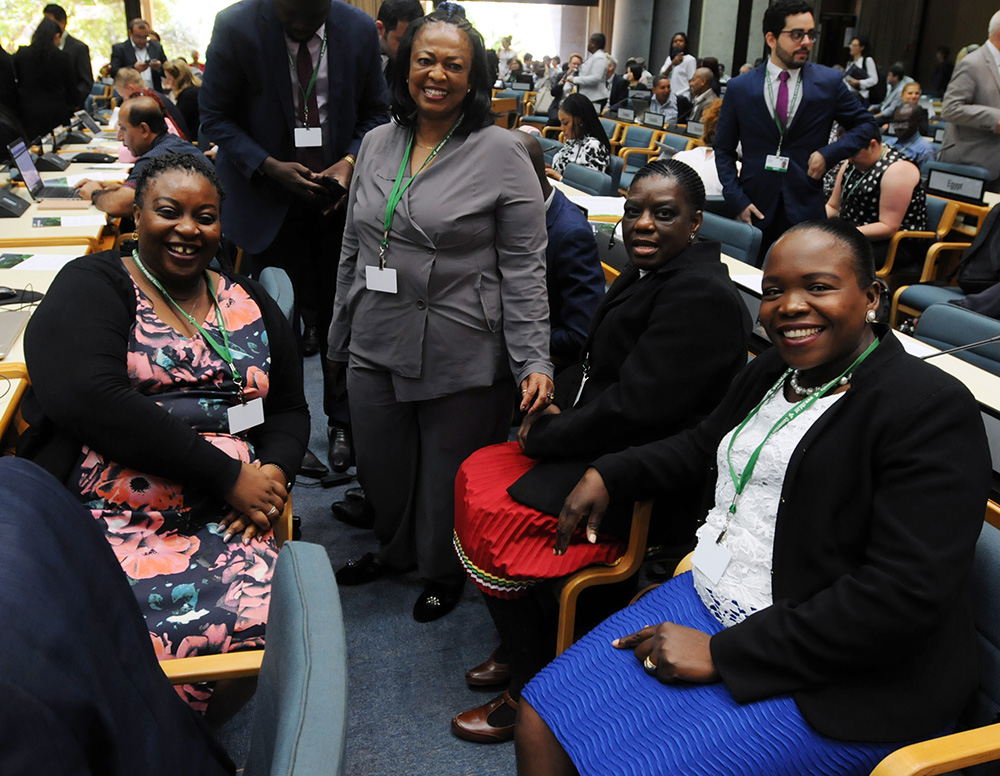
The South African delegation
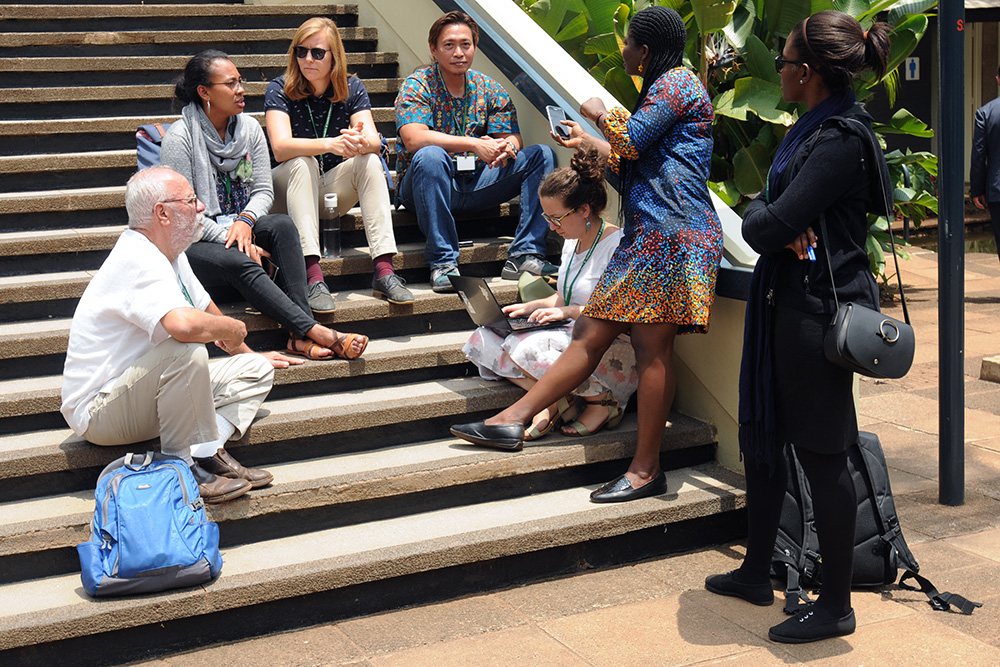
Representatives from Civil Society during a break
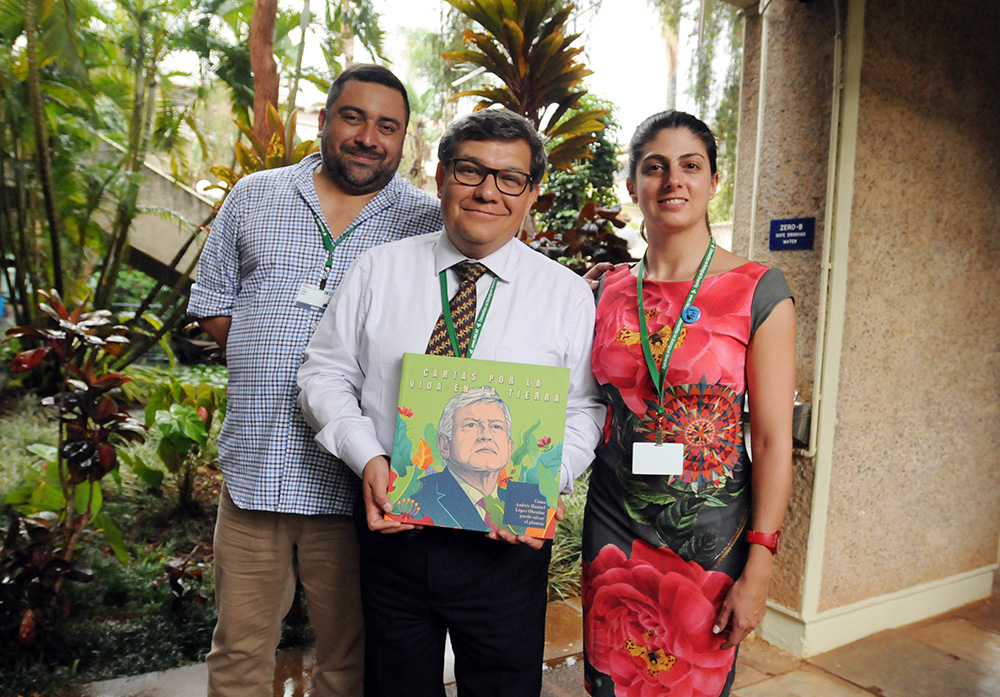
L-R: Óscar Soria, Avaaz; Hesiquio Benítez Díaz, Mexico; and Laura Rico, Avaaz



























